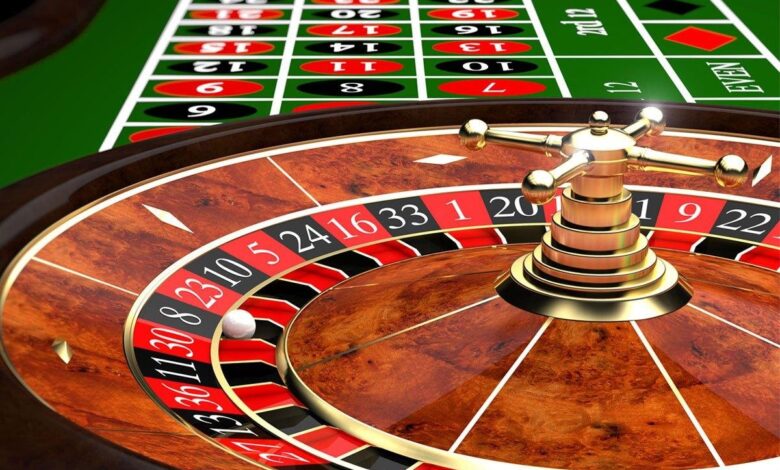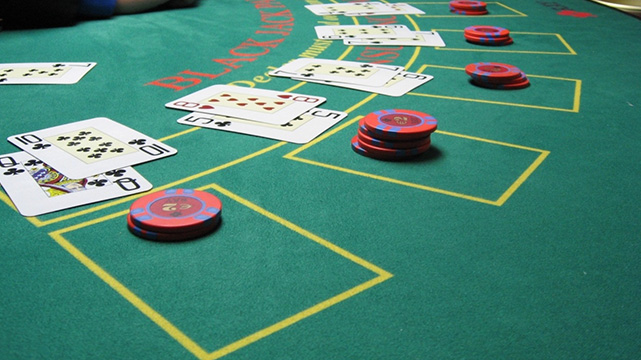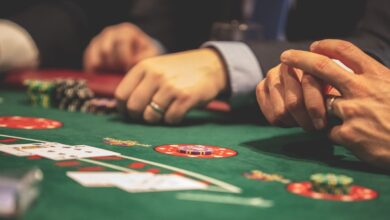The Science of Chance: Exploring the Role of Luck in Casino Games

Casino games have always been a source of excitement and entertainment for people around the world. While some may attribute the outcome of these games to luck or chance, the science behind them is much more complex. Understanding the role of chance in casino games can help players make more informed decisions and, ultimately, increase their chances of winning. In this article, we will explore the science of chance in casino games and how it affects the outcome of these games.
Probability and Casino Games

Probability plays a crucial role in the outcome of casino games, and it is a fundamental concept that is essential for understanding the science of chance. In casino games such as roulette and craps, the probability of each outcome is determined by the number of possible combinations of the dice or the numbers on the wheel. Players who understand the basics of probability can make better decisions and improve their chances of winning. In addition to this, understanding probability can also help players determine which bets to place based on the odds of winning.
Random Number Generators
Random number generators (RNGs) are used in many casino games, including slot machines and video poker. These programs generate a sequence of random numbers that determine the outcome of each game. RNGs use complex algorithms to ensure that the numbers generated are truly random, which will provide that the game is fair and unbiased. Understanding how RNGs work can help players trust that the games are not rigged and can give them more confidence in their chances of winning. RNGs can also help players understand how to maximize their chances of winning. However, it is also important to find a reliable casino site to gamble on, such as www.australianonlinecasino.io, because only in that way can a player ensure fair playing.
House Edge

The house edge is a crucial concept in the world of casino games, and it is the advantage that the casino has over the player. It is the percentage of each bet that the casino expects to keep over the long run. The house edge varies from game to game and can range from less than 1% to more than 15%. However, the house edge is important for players, as it can help them make more informed decisions about which games to play. Players who choose games with lower house edges can improve their chances of winning in the long run. Additionally, the house edge can also help players realize how much they can expect to win or lose over time.
Skill-Based Games
While many casino games are based purely on chance, there are some games that require skill and strategy. Games such as blackjack and poker require players to make decisions that can affect the outcome of the game. When it comes to the rules and strategies of these games, players should know that they can help them to improve their chances of winning. Skill-based games can be more challenging and require more effort from players, but they can also be more rewarding and satisfying.
The Gambler’s Fallacy
The gambler’s fallacy is a common mistake that many players make, and it is the belief that a particular outcome is more or less likely to occur based on previous outcomes. Besides, the concept of the gambler’s fallacy can help players make more rational decisions and avoid making costly mistakes. For example, if a player has lost several hands of blackjack in a row, they may believe that they are due for a win. However, each hand is independent of the previous hand, and the odds of winning or losing remain the same.
House Rules
Each casino has its own set of rules that govern the gameplay and payouts of its games. Understanding these rules is important for players, as they can affect the outcome of the game. For instance, some casinos may offer better payouts for certain bets in roulette, while others may require a minimum bet for certain games. Players who take the time to learn the house rules of the casino they are playing at can make more informed decisions and improve their chances of winning. In addition to this, comprehending the house rules can also help players avoid making costly mistakes and ensure that they are playing within the casino’s guidelines.
Bankroll Management

Bankroll management is an essential aspect of gambling, and it involves managing one’s money to ensure that it lasts as long as possible. Players who practice good bankroll management can avoid losing all their money too quickly and can improve their chances of winning in the long run. Bankroll management involves setting a budget, sticking to it, and avoiding chasing losses. Players who are disciplined and manage their money wisely can enjoy their gambling experience without risking too much.
The Role of Emotions
Emotions can play a significant role in gambling, and they can affect a player’s decision-making process. Players who are experiencing emotions such as anger, frustration, or excitement may be more likely to make irrational decisions and make costly mistakes. The role of emotions in gambling can help players make better decisions and avoid making impulsive bets. It is important for players to stay calm and rational when gambling and to avoid making decisions based on emotions.
Chance vs. Skill
The debate between chance and skill is an ongoing one in the world of gambling. While many casino games are based purely on chance, there are also games that require skill and strategy. Some players may prefer games that require skill, as they feel that they have more control over the outcome. Other players may prefer games that are based purely on chance, as they feel that they are more exciting and unpredictable. The differences between chance and skill can help players choose the games that best suit their preferences and increase their chances of winning.
The Importance of Responsible Gambling
It is essential to emphasize the importance of responsible gambling. Gambling can be a fun and exciting activity, but it can also be addictive and can have negative consequences. Players should always gamble responsibly and within their means, and they should never gamble with money that they cannot afford to lose. It is important for players to set limits, take breaks, and seek help if they feel that they are developing a gambling problem. Responsible gambling ensures that gambling remains a safe and enjoyable activity for everyone.



